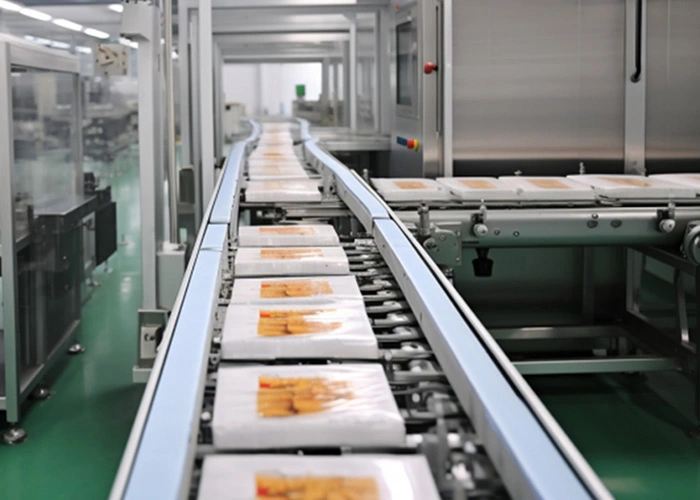
Many processes in the food sector require water chillers. Chillers can quickly cool heated materials to suit canning and bottling requirements. Additionally, different fermented foods require varied chilling temperatures to stabilize fermentation, improve results, and maintain quality. We also offer food-grade chillers for food sector needs.
Chillers provide an indispensable and significant function in the food and beverage sector. They are essential apparatus for guaranteeing consistent production processes and superior product quality. In food and beverage manufacturing, numerous procedures necessitate exact temperature regulation, and chillers offer consistent and efficient cooling assistance to satisfy the stringent temperature demands of various products.
Chillers are extensively utilized in the processing and mixing of raw materials in beverage production. During the filling process of carbonated beverages, the liquid must be maintained at low temperatures to avert excessive volatilization of carbon dioxide, hence preserving flavor and product stability. Chillers help maintain optimum process conditions, cut energy consumption and enhance efficiency by providing low-temperature cooling water to the production line. Moreover, in the production of fermented products like beer and lactic acid bacteria beverages, chillers maintain uniform and stable fermentation by accurately regulating the fermentation temperature, thereby creating optimal flavor and quality.
Chillers are essential for food processing. In the manufacturing of quick-frozen foods, chillers rapidly lower food temperature, inhibit bacterial proliferation, and preserve minerals and flavors. In processes like chocolate and candy production that necessitate exact temperature regulation, chillers maintain product quality and uniformity during processing and curing by delivering stable low temperatures. Simultaneously, in the processing and storage of meat and seafood, chillers facilitate the effective functioning of the cold chain system to preserve the freshness and safety of food.
The significance of chillers in the food and beverage sector is evident in enhancing production efficiency and minimizing operational expenses. By enhancing temperature regulation, chillers diminish the scrap rate resulting from temperature variations, elevate the product qualification rate, and augment the production efficiency of organizations. The advantages of modern chiller equipment in energy conservation and environmental protection also enable firms to meet demanding food safety and environmental protection regulations while minimizing energy consumption.
In summary, chillers are essential temperature regulation devices in the food and beverage sector, spanning from raw material processing to final product packaging. They significantly contribute to enhancing product quality, streamlining production processes, and advancing sustainable development. The utilization of chillers not only fosters technological advancement in the food and beverage sector but also offers substantial assistance for companies to enhance their market competitiveness.



